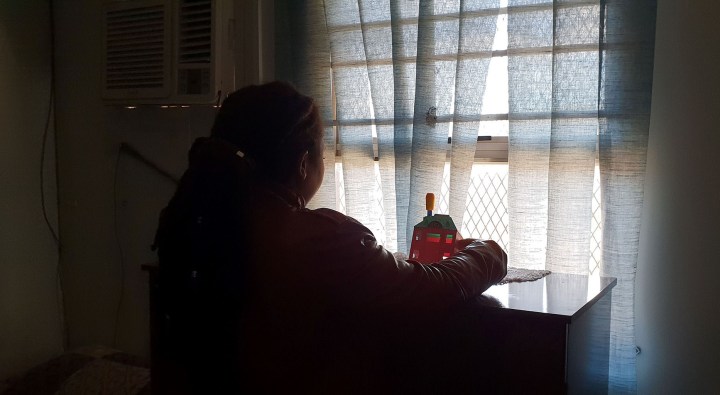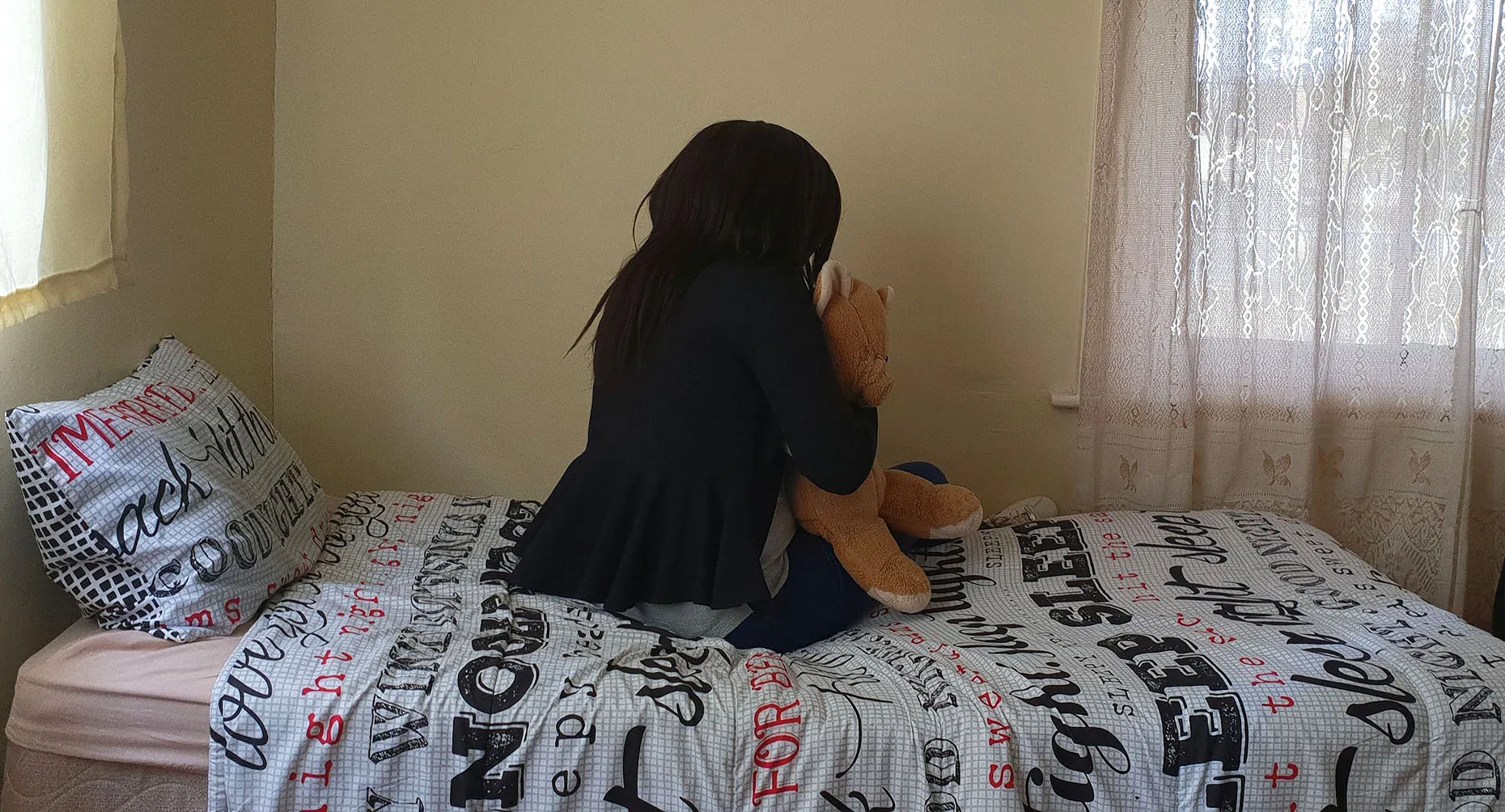Sanctions and sanctuary in Covid-19
How non-governmental shelters have had to adapt to a national state of disaster

New research reveals the Department of Social Development’s dependence on NGO shelters during Covid-19, and their tendency not to provide adequate support and funding despite this reliance.
“The first client I got was this woman from Hanover Park. That day … and I think right at the beginning of lockdown, everybody was still unsure about how things were going to work… it took us a day [to place her]” – A community activist who facilitated women’s access to shelters in the Western Cape, interviewed as part of the broader Heinrich Böll Foundation Study
Globally, in times of crisis, gender-based violence tends to escalate, placing increased demand on services for survivors. Disaster is by its very nature disruptive, but the needs of survivors of gender-based violence remain the same.
When the National State of Disaster was declared in March 2020 and the country entered a strict lockdown, gender-based violence activists and service providers in South Africa braced for an expected increase in violence. Women in violent relationships would be locked in their homes with the most common perpetrator of domestic violence in South Africa — a current or former intimate partner. New research launched by the Heinrich Böell Foundation on 2 December 2021 confirms that the demand for shelter services increased dramatically in some provinces, and that all shelters had to adapt to challenging conditions of work.
The report titled Adapting to Disaster: Domestic Violence Shelters and South Africa’s Covid-19 Lockdown is the second in the series focussing on Care and Support in a Time of Epidemic, and it draws on interviews with 27 shelters managed by non-governmental organisations (NGOs) in eight provinces. Shelters were selected from members of the National Shelter Movement (NSM), an umbrella body for shelters across the country, established in 2008.
Most shelter services, like other social care services, are delivered through a partnership between NGOs and the DSD, where the DSD provides subsidy funding either for programmes or posts. Yet, after reading the research, it is difficult not to be left with the question — ‘what would have happened if there had been no NGO-led shelter services at the time the pandemic hit?’
“From a numerical point alone, the availability and accessibility of shelters would have been extremely limited, as NGO shelters provide the overwhelming majority of shelter services in the country,” says Lisa Vetten, research associate at the Southern Centre for Inequality Studies at the University of the Witwatersrand and lead researcher on Adapting to Disaster.
The research provides evidence of the difficult task of providing shelter for the many needy women and children who fled their homes during the Covid-19 lockdown. During the lockdown, the NSM “mobilised rapidly to ensure that shelter services were available, and that staff and beneficiaries kept safe.” In addition, the NSM created new services, establishing a shelter helpline in November 2020 to assist people in accessing care and partnering with Uber to assist with transporting people to shelter.

Non-government organisation (NGO) run sheltering services are vital for South Africa’s domestic violence response, providing safe haven to thousands of women each year, however they frequently operate without sufficient funding from government.
(Photo Supplied: Claudia Lopes, Heinrich Boell Foundation)
NGO-led shelters provided these innovative and necessary services, often at great expense to themselves, and without guidance or additional funding from the DSD. The research also reveals that despite a duty to do so, DSD social workers did not provide counselling services in some provinces and did not fulfil their duty to provide child protection services.
The research reveals the continuation of a long-standing pattern of dependence on Non-Governmental Organisations, often in a context of poor communication, strained personal relationships, and underfunding. “You could say that in parts of the country NGO services became the state,” says Vetten. “It could be safely speculated that if we had been entirely dependent on DSD shelter services, some social workers would not have shown up at all, making shelter services unavailable, and that would have cut vital support to women, either condemning them to remain with the partners or to move around with whoever would take them.”
At issue, says Vetten, is the attitude of some DSD officials towards NGO services, where NGO service providers are not treated as equal partners. One notable exception that the research revealed was the work of the Western Cape Government Department of Social Development, who Vetten says “treated shelters as knowledgeable partners and started thinking with them about what was needed to be done soon after the State of Disaster was declared. They jointly developed protocols and standard operating procedures with shelters before the lockdown.
“At the start, nobody knew what to do,” said Sibusiso Malope*, Director of Victim Empowerment at the National Department of Social Development, speaking as a panellist at the launch of the research. From his perspective, the DSD was now in a much better space in than it had been in March 2020 because government leaders had since acknowledged the vital need to provide care services for survivors of violence. In fact, President Ramaphosa declared GBV as South Africa’s second pandemic, early on in the lockdown.
Malope also noted that at times, the DSD had not been supported by the National Treasury in their requests for additional funding support — something that is likely to worsen given the significant cuts to social services expenditure outlined by the Medium-Term Expenditure Framework. So, whilst national government leaders, including the President, may be saying the right things, the sector is not seeing the consequent allocation in terms of additional funds.
“Sometimes we let the DSD off the hook by blaming Treasury,” says Vetten. “Treasury allocates on the basis of an evaluation of departments’ bids. If the DSD hasn’t done the work then Treasury can’t be expected to guess, and it’s very clear from the research that there was no realisation [by the DSD] of the extent of costs that the lockdown was going to impose.”
Lending credence to Vetten’s suggestion is a response to a parliamentary question earlier this year, which reveals that the provincial departments of DSD were unable to spend their existing budgets, returning a staggering R1,141,296,000 in unspent funds to Treasury.
An important question raised launch facilitator Thoko Madonko remains. How do we future proof care work and the care economy so that in future crises we do better?
Vetten explains that “the DSD does not have a standardised costing for shelters. In keeping with a recommendation from its 2016 review of the state response to GBV, the Department of Performance Monitoring and Evaluation commissioned research aimed at identifying and costing a new set of core services addressing GBV. This was completed in 2020. It has never been released nor made public, suggesting that none of its costings and service specifications have been acted on.”
It’s clear that lip service will not support survivors of GBV. Without action, additional and equitable funding, and equitable working relationships between the state and NGO service providers, lip-service will leave the country in no better position to respond as the pandemic progresses, or as future crises strike. DM/MC
*Request for additional comment was sent to Mr Malope, but no response was received.





















 Become an Insider
Become an Insider
Comments - Please login in order to comment.